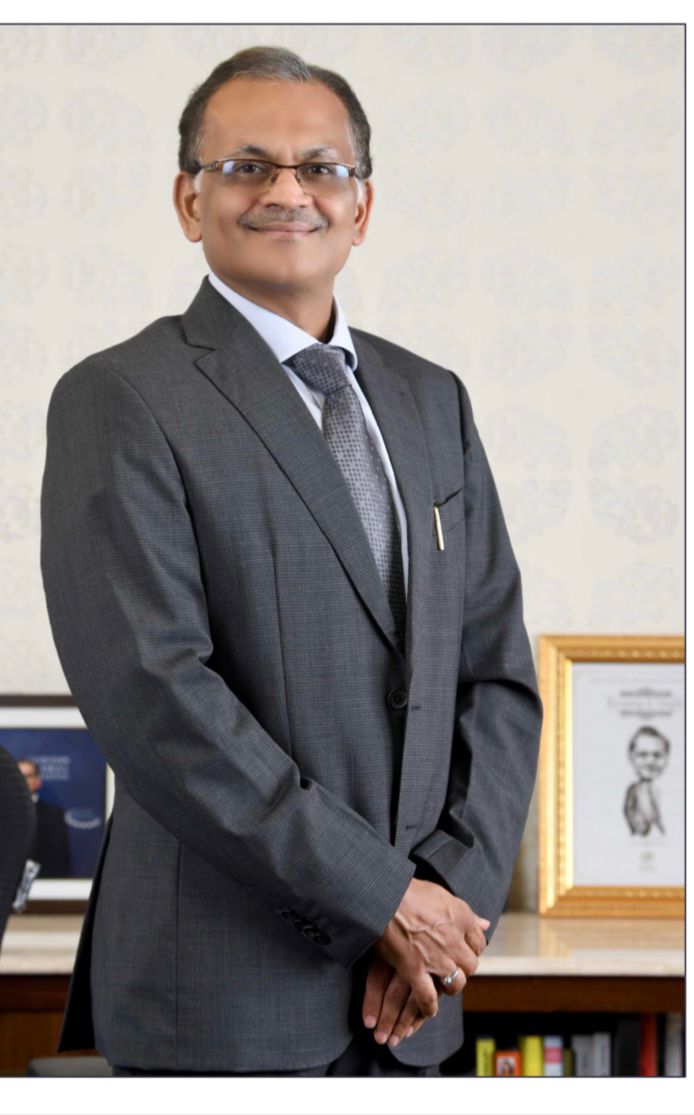India's relentless march towards infrastructure development has been a subject of global admiration and intrigue at the recent G20 summit. Reflecting on the sheer diversity of infrastructure projects in India, Hemant Kanoria, former chairman of Srei Group of Companies, painted a vivid picture of an ever-evolving sector, with projects spanning transportation, energy, and urban development. “The landscape includes expansive road networks, railway modernization, airport expansions, and a surge in renewable energy initiatives. India's aspirations also encompass the creation of smart cities and affordable housing complexes,” said Kanoria. However, the industry veteran highlighted a stark reality - the mismatch between the pace of infrastructure growth and the available avenues for financing.
He cited a World Bank report that underscored India's need to invest an average of $55 billion per year into urban infrastructure to cater to its fast-growing urban population. This translates to an astounding $825 billion over the next 15 years, accentuating the formidable financing gap.
Dwelling on the void created by the absence of specialised infrastructure finance companies like Srei , Kanoria said, “While various entities have attempted to fill this void, a comprehensive replacement is yet to emerge. This transition disrupted the flow of capital, resulting in project delays and compelling companies to seek alternative financing routes. Additionally, the void left in supporting Micro, Small, and Medium-sized Enterprises (MSMEs) has further complicated the sector's growth trajectory.”
Notably, in a seismic development in the financial world, the Reserve Bank of India (RBI) made a stunning announcement in 2021. The regulatory authority revealed its decision to assume control of the boards of Srei Infrastructure Finance Ltd (SIFL) and Srei Equipment Finance Ltd (SEFL), two prominent entities within the Srei group. The reasons cited by the regulator revolved around concerns regarding governance and instances of defaults to creditors.
Kanoria, a pioneer in infrastructure financing in India since 1989, recently contested the insolvency order issued by the Kolkata bench of the National Company Law Tribunal (NCLT) in October 2021. He lodged this challenge in the National Company Law Appellate Tribunal (NCLAT) just last month.
Kanoria also delved into India's ambitious plan to invest $1.4 trillion in infrastructure development over the next five years. He emphasized the pivotal role of Non-Banking Financial Companies (NBFCs) in this endeavour. He stressed the need for a robust MSME sector, essential for infrastructure development. “MSMEs are the engines that drive growth and play a critical role in acquiring contracts, leasing construction equipment, and adopting advanced technology. In his view, specialized NBFCs, similar to SREI, will play a more substantial role than traditional banks in India's growth story. The flexibility of infrastructure financing structures and refinancing options is vital for the sector's vitality,” said Kanoria.
About the challenges brought about by the exits of several NBFCs, including specialized ones like SREI, in recent years Kanoria expressed deep concern over the reduced availability of credit, elevated interest rates, liquidity constraints, and the diminishing innovation in specialized financial products. “The equipment finance and infrastructure funding sector have borne the brunt of these challenges especially during the Covid. Smaller and mid-sized players faced difficulties in understanding their business needs without the support of these NBFCs,” he lamented.
Kanoria also acknowledged the significance of the IBC in addressing failed businesses but proposed several changes to enhance its effectiveness. He emphasized the need to make the admission process under Sections 7 and 9 less mechanical, requiring applicants to provide adequate proof of debt admission and default reconciliation. “There should be gradual of pre-packaged insolvency solutions, increased stakeholder participation, a focus on business revival, and the integration of out-of-court debt restructuring mechanisms alongside the formal insolvency process,” advocated Kanoria.
Indeed, underscoring the importance of India learning from international best practices in infrastructure financing, Kanoria emphasized the significance of effective risk allocation and mitigation, long-term funding solutions, and transparent risk-sharing mechanisms to boost investor confidence and attract private participation. “Looking to countries with mature infrastructure markets can provide India with insights into creating long-term funding solutions,” advised Kanoria.









